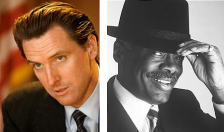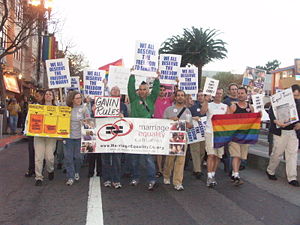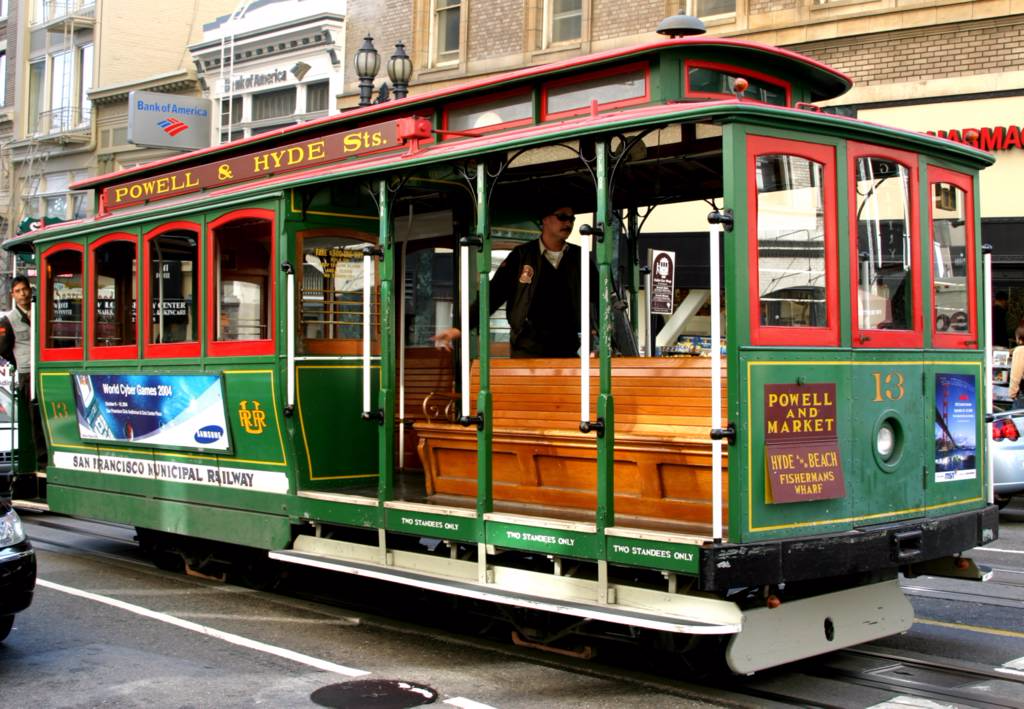October 10, 2001
MONEY AND POWER
The big foundations that helped bring us deregulation are still on the wrong side.
By Savannah Blackwell
If you’re going to screw the public, it helps to have some cover. That’s a lesson Pacific Gas and Electric Co. has learned well.
In fact, the deregulation scheme of 1996 that led to soaring rates and crumbling service wasn’t just backed by the private utilities. Some of the strongest support came from environmental groups, funded by a handful of big foundations.
The result: California legislators who took PG&E’s side were able to argue that they were only doing what the environmentalists asked them to do. The disastrous deregulation bill passed easily – and efforts to overturn it with a citizen initiative were crushed.
The process of buying off the public interest community was subtle – but effective. PG&E gave money directly to a lot of organizations (see “PG&E’s Web of Influence,” page 22), and foundations simply refused to fund anyone who opposed deregulation or supported public power (see “The Energy Elite,” 10/9/97).
Since public interest groups increasingly rely on foundation money to stay in business, that’s an effective strategy: The groups that get the funding can hire staff, do research and political organizing, and present an effective message. The ones that don’t do what the foundations want remain small, underfunded, and less able to be politically effective.
Now the world of energy policy has changed. PG&E’s in bankruptcy court, deregulation is largely discredited, and there’s a successful grassroots move for public power on the November ballot in San Francisco. Around the country groups like Ralph Nader’s Public Citizen in Washington, D.C., and fellow consumer activist Harvey Rosenfield’s San Diego-based group, the Foundation for Taxpayer and Consumer Rights (FTCR), are mounting a new effort to promote public control of energy resources.
So where are the big foundations that helped PG&E create the mess and the environmental groups that did their dirty work? With few exceptions, they’re still up to the same tricks.
The municipal utility district initiative has the support of most of the local green groups, including the Sierra Club, the Green Party, and San Francisco Tomorrow. And it will likely get the official endorsement of the Consumers Union, according to officials from that organization.
But while the large, moneyed foundations that supported deregulation have pretty much given up on it, they still aren’t helping to promote effective progressive change. Organizations that fight to replace private utilities with public power or that oppose a state bailout for bankrupt utility companies still aren’t getting funded.
NRDC’S friends
The group most responsible for creating the veneer of environmental friendliness that sugarcoated deregulation was the Natural Resources Defense Council, whose utility-friendly policies were articulated by energy policy director Ralph Cavanagh.
The $45 million-dollar Energy Foundation, based in the Presidio National Park, funds Cavanagh’s work for the NRDC. And in 1996 the foundation pulled the plug on grants to groups fighting the notion that ratepayers should be responsible for paying off the utilities’ investments in nuclear power.
The even wealthier Pew Foundation, the influential Philadelphia-based outfit that funds many non-profits, including the Energy Foundation, with money from the philanthropic arms of private industry, including oil, likewise steered funding away from any groups opposed to deregulation (see “Bailout Battles,” 12/3/97).
According to Public Citizen, Pew has quietly backed away from involvement in deregulation issues since California’s version proved disastrous when rates shot sky-high in San Diego in summer 2000. Instead, Pew is now focused on the noncontroversial area of slowing global climate change through energy policy.
“I think Pew is getting out of [deregulation] issues,” Public Citizen executive director Wenonah Hauter told us. “I think it’s been an embarrassment to them.”
But Hauter said that while it’s helpful that the foundations are no longer as actively involved, the situation has not changed fundamentally, because money from those outfits still does not flow to groups fighting the utilities.
“You’re still not able to get money for fighting deregulation, not from the big foundations,” Hauter said. “In that sense nothing has changed.”
Pew representatives either refused to answer questions about the shift in focus or did not return phone calls seeking comment.
Memory Loss
According to the FTCR, which organized the unsuccessful campaign to overturn deregulation, the Energy Foundation also would prefer that no one recalled the role it played in deregulation.
“Everybody knows deregulation failed. But what people don’t always remember is that a few environmental groups were amongst the chief cover for the passage of this lunacy,” Doug Heller, consumer advocate at the FTCR, told the Bay Guardian.
The FTCR is still actively fighting against the utilities in Sacramento and has been trying to thwart efforts by Gov. Gray Davis and some legislators to bail out the corporations. It supports state and local power efforts.
The Energy Foundation isn’t doing anything to oppose the bailouts. Its representatives still insist that deregulation had its advantages.
A report recently published on the foundation’s Web site admits that the utilities’ undue influence on the legislature led to problems in the market, but it does not mention the nonprofit’s role in funding groups friendly to the utilities’ interests.
The Energy Foundation isn’t doing much of anything for public power. When asked if the foundation is supporting any groups pushing for greater public control of energy service, program officer Bentham Paulos said the outfit is funding a group in Ohio that is pushing for community aggregation (the form of public power least feared by private utilities). But, he said, the foundation still neither supports nor opposes public power and takes no official position on campaigns.
Paulos did say that he agrees public power can lead to environmentally friendly energy policies. “I feel somewhat optimistic about San Francisco [going into the power business],” Paulos told the Bay Guardian.
But if you’re a group working to get the private utilities out of the energy business, don’t look to the Energy Foundation for money.
For his part, Cavanagh still won’t say deregulation was a mistake. A report on the NRDC’s Web site dealing with the California crisis and coauthored by Cavanagh says nothing about mistakes or problems with the market, much less Cavanagh’s part in the whole mess. And neither Cavanagh nor the NRDC is backing any public power campaigns. Instead he’s arguing that private utility profits should be linked to reliable service. Cavanagh did not return Bay Guardian calls for comment by press time.
Public Citizen says this is the same tired, ineffective, procroporate line NRDC has always given.
Tyson Slocum, Public Citizen’s research director, told the Bay Guardian the group is doing what it can to spread the word on the policy level, discussing the merits of publicly controlled electricity service at activist policy discussion groups. “We’ve got to reintroduce public accountability into electricity markets,” he said.
Nettie Hoge, director of the Utility Reform Network, told the Bay Guardian the consumer group also believes public ownership and control of electricity services is the best solution to the current mess.
“We’re totally supportive of public power, and we are looking at the particulars of the two measures,” Hoge said.
Too bad she can’t get any serious money from the big-dough energy foundations to back up that talk.







